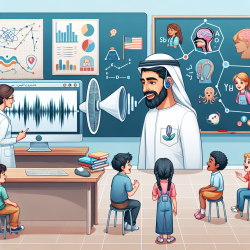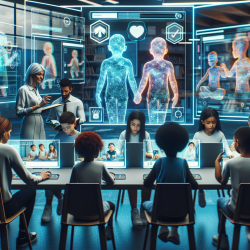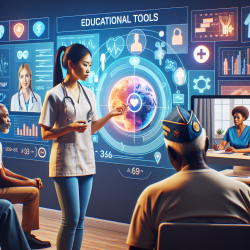Understanding the Impact of COVID-19 on Special Education
The COVID-19 pandemic has posed unprecedented challenges for the education sector, especially for special education services. According to the research article "Free Appropriate Public Education in the Time of COVID-19," schools have had to navigate complex legal obligations while ensuring equitable access to education for students with disabilities. The Individuals with Disabilities Education Act (IDEA) mandates that students with disabilities receive a Free Appropriate Public Education (FAPE), even during a pandemic.
Key Takeaways for Practitioners
Practitioners can enhance their skills and improve service delivery by focusing on several strategies outlined in the research:
- Understanding Individual Needs: Tailor educational programs to fit the specific needs of each student. This involves active communication with families to assess barriers to remote learning.
- Building Partnerships: Develop authentic partnerships with families and communities to ensure they are engaged in the educational process. This collaboration is crucial for creating effective Individualized Education Programs (IEPs).
- Data-Driven Decision Making: Use data to make informed decisions about educational programming. Collecting and analyzing data helps in assessing students' progress and adjusting IEPs accordingly.
- Ensuring Valid Evaluations: Conduct evaluations in remote environments with a focus on ethical and valid assessment practices. This may involve using digital tools and maintaining open communication with families.
- Promoting Collaboration: Foster interagency and interdisciplinary collaboration to provide comprehensive support for students. Utilize digital platforms for meetings and information sharing.
Addressing Challenges in Rural Areas
Rural schools face unique challenges, such as limited access to technology and broadband internet. Practitioners in these areas need to be innovative in delivering services. Solutions include deploying WiFi hotspots, providing low-tech instructional materials, and ensuring that families have the resources to support remote learning.
Legal Implications and Compliance
Compliance with IDEA and ADA is non-negotiable, even during a pandemic. Practitioners must ensure that IEPs are adhered to and that any changes are documented and communicated to families. Legal cases during COVID-19 have highlighted the importance of maintaining procedural and substantive compliance to avoid violations.
Encouraging Further Research
Practitioners are encouraged to delve deeper into the research to explore innovative solutions and strategies for overcoming the challenges posed by the pandemic. Continuous learning and adaptation are key to providing high-quality special education services.
To read the original research paper, please follow this link: Free Appropriate Public Education in the Time of COVID-19.










